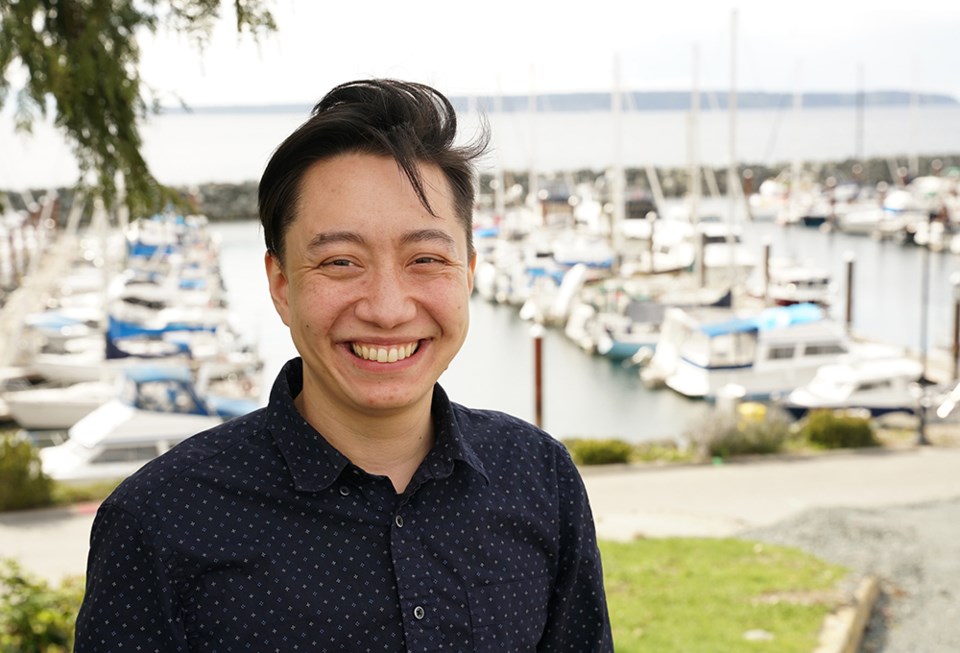Green Party of Canada’s interim leader is hoping to build the party and get back to basics.
Dr. Amita Kuttner, in a visit to the qathet region as part of a cross-country reconnection tour, said the stops are part of a party rebuilding process.
“I’m getting the sense that a lot of people are not cared for,” said Kuttner. “We don’t get what we need. We don’t have the ability to live our lives the way we want. There’s struggle after struggle and crisis after crisis. Greens are setting a foundation for creating what we actually want out of the world, our country and our communities, when that isn’t what we get from our government.
“It’s about resetting our vision. Often, you get into the details of policy, and you lose sight of the bigger picture of what we are all trying to accomplish. I want to centre everything that the party does based upon what the members, the Greens across the country, are actually trying to build.”
Kuttner said the Green Party is different from the others in that it is very democratic.
“The party belongs to the members and the leader doesn’t hold the same position as leaders in other parties,” added Kuttner. “The leader is a spokesperson, an organizer and a guide, perhaps, in how we go, but it is my responsibility to represent what it is the Greens want. I feel, instead of changing direction, it’s returning to our roots. What is at the top of a lot of people’s minds, especially with the pandemic, is the basics. It is food security, water security, housing, health, and family and community connections.
“This is the heart of what we believe in. We want a way of life that takes care of our basic needs. It’s founded around the well-being and care for each other that lasts for generations. It’s true sustainability.”
Kuttner said a lot of people are hurting, which is how the leader opens town hall meetings that are part of the tour.
“It’s about crises, it’s about the fact that people are struggling, and the fact that all of these crises are connected,” added Kuttner. “To me, it’s about looking at the core of it. These crises are linked to the systems and the structures that have been put in place to run our society. It is those that need transformation, and for the power to be understood to be in the people, to make our communities look like what we want and what we need.”
Kuttner said Ottawa is very divided and divisive.
“It serves a lot of the politicians and political parties to do that; it’s what centralizes their base for electability,” said Kuttner. “I don’t care about that. What we want is to serve people, to make our lives better and make our systems and structures resilient. We need to make sure we have a chance to talk about ways we can solve our problems that serve everyone at once.
“There’s a way we can address both sides of an argument, but no one is doing that. It’s push and pull. Someone has to lose out. There are actually solutions that serve everyone.”
Consensus process
Kuttner said Greens advocate for a government that is collaborative.
“At the grassroots it’s all about consensus building, and my experience with caucus is that it is consensus building,” added Kuttner. “People talk about consensus as impossible, but a true consensus process is one of reasonable discourse, and you get a lot more progress if you can work on things. It results in people being able to move forward together.
“For Greens, it’s about intergenerational survival and setting up a way of life that lasts for generations that isn’t based on scarcity, but rather, is founded in abundance.”
The primary responsibility for every elected Green is to represent the people in their communities, not party lines, according to Kuttner.
“The reason I ran for the Green Party is largely because of the integrity of the dedication to governance and representation democracy,” said Kuttner. “It’s about bringing people to government.”
In terms of Kuttner’s status as interim leader, the Greens have not picked a date for the leadership election. Kuttner said the rules are currently being worked on and the national council will be voting on those rules in early May. The constitution requires the leadership process to start May 24.
“This is an opportunity for transpiration for us and I want to make sure this party really stays belonging to its membership,” said Kuttner, “and that we have a network structure that is resilient and sustainable.”



